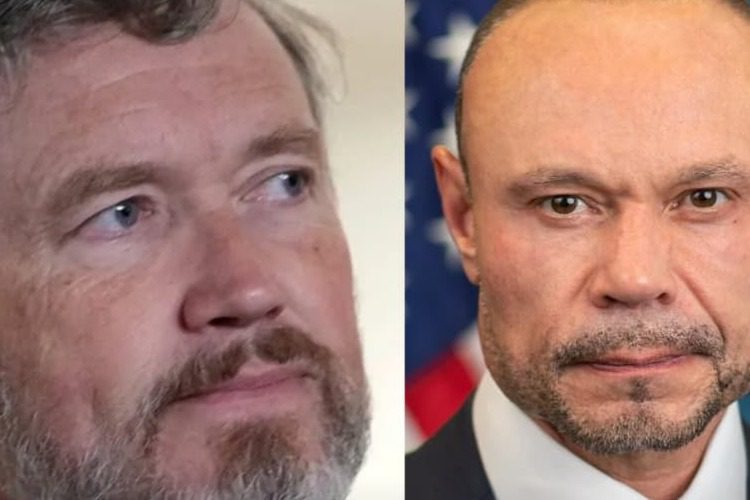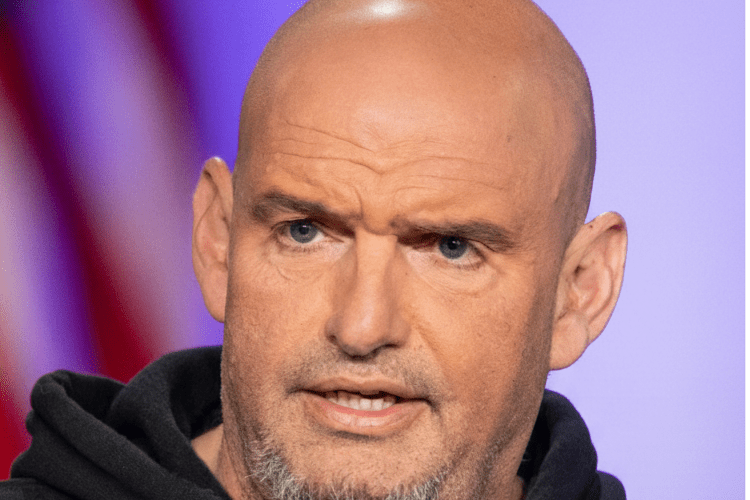From Podcaster to Powerhouse: Dan Bongino’s Explosive Takedown of Thomas Massie Exposes Raw Tensions in the Hunt for January 6’s Phantom Bomber – Whistleblower Drama Threatens to Blow the Lid Off a Four-Year Scandal
In the shadowed corridors of Capitol Hill, where the air still carries the faint echo of chaos from that fateful winter day four years ago, a single unanswered phone call has ignited a firestorm that’s ripping through the heart of Washington’s power players. Imagine the late-night glow of a smartphone screen in a quiet Kentucky home, Rep. Thomas Massie poring over a whistleblower’s desperate letter, his jaw set in that familiar mix of quiet resolve and unyielding skepticism. The words on the page aren’t just ink—they’re a lifeline from an FBI insider, alleging a chilling sabotage in the probe into the pipe bombs that lurked like ticking time bombs outside the Democratic and Republican national committees on the eve of January 6, 2021. For Massie, a libertarian firebrand who’s never shied from staring down the giants of government overreach, this isn’t bureaucracy gone awry; it’s a betrayal that strikes at the core of trust in the institutions meant to protect us all. But when he voices those fears publicly, the response comes not in whispers or backroom deals, but in a blistering, public rebuke from none other than FBI Deputy Director Dan Bongino—a man whose own journey from radio waves to the front lines of federal law enforcement embodies the gritty, no-holds-barred spirit of the Trump era. As these two titans clash, their showdown isn’t just political theater; it’s a raw, emotional unraveling of a mystery that’s haunted the nation, forcing us to confront whether justice can ever outrun the shadows of suspicion.

To grasp the depth of this rift, you have to rewind to that eerie evening of January 5, 2021, when the streets of Washington, D.C., buzzed with the prelude to unrest. Under the cover of dusk, an unidentified figure—clad in dark Nike gear, backpack slung low—slipped through the alleyways near the Democratic National Committee headquarters on Massachusetts Avenue. Security footage, grainy but unmistakable, captured the moment: a device, crude yet deadly, tucked into a shadowed nook beside a park bench, its timer silent but ominous. Less than a mile away, the same shadow haunted the Republican National Committee on First Street, planting a second bomb that would sit undiscovered for hours as the Capitol teetered on the brink of bedlam the next day. Discovered around 1 a.m. on January 6 by a uniformed officer, the devices were rendered safe by bomb squads in the frantic hours that followed, their fuses mercifully stalled at about 17 hours. No one was hurt, thank God, but the what-ifs linger like smoke: What if those bombs had detonated amid the crowds? What if the chaos they’d unleash had amplified the tragedy unfolding on the Hill? The FBI swooped in immediately, labeling it a potential act of domestic terrorism, and for four long years, they’ve chased leads with a $500,000 reward dangling like a beacon for tips. Yet, as of October 2025, the case remains unsolved, the suspect—a person of interest standing about 5-foot-7, last seen in those distinctive black, gray, and yellow Nike Air Max Speed Turf sneakers—eluding capture despite enhanced videos released just weeks ago, showing the figure methodically placing the bombs between 7:30 p.m. and 8:30 p.m.

Enter Thomas Massie, the bearded engineer-turned-congressman from Kentucky’s 4th District, whose owlish glasses and unflappable demeanor hide a bulldog tenacity that’s made him a thorn in the side of unchecked authority since he first took office in 2012. Massie’s no stranger to the emotional weight of these battles; a father of four who’s balanced the scales of family life with the relentless grind of oversight, he’s often spoken of the personal toll—sleepless nights sifting through classified briefings, the gnawing doubt that comes from questioning the very agencies sworn to uphold the truth. His involvement in January 6 scrutiny deepened last January, when, alongside House Administration Subcommittee Chairman Barry Loudermilk, he co-authored a scathing report blasting the FBI’s initial response. That 2025 document, released on January 2, painted a picture of missed opportunities: Why did the Secret Service know about the bombs by 8:17 p.m. but fail to alert the Capitol Police until after 1 a.m.? Why were resources diverted to the rally crowd instead of sweeping the perimeter? Massie’s push wasn’t partisan rage; it was a call for sunlight, the kind that heals wounds by exposing them. Fast-forward to November 2025, and that resolve crystallizes in a whistleblower’s letter landing on his desk like a grenade. Penned by an attorney representing an FBI agent deep in the investigation, the missive claims not just stagnation, but active interference—agents stonewalled, leads buried, and a prime suspect shielded under layers of protection. At the center? Shauni Rae Kerkhoff, a former Capitol Police officer whose promotion to the CIA in the years following January 6 raises eyebrows sky-high. Gait analysis, the letter alleges, matches her stride to the bomber’s on that fateful footage, a forensic thread that whistleblower sources say the bureau has quietly unraveled rather than pursued.
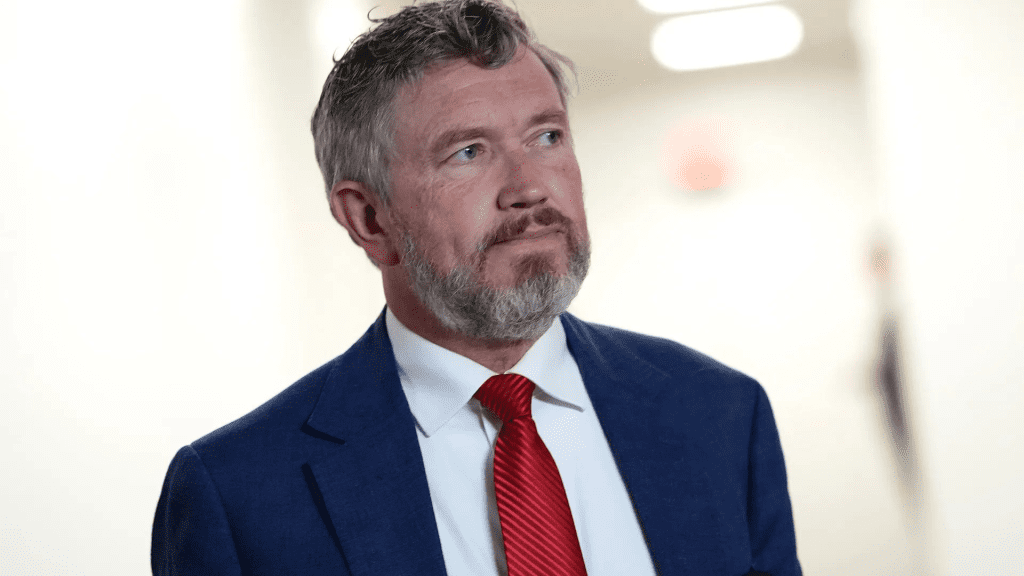
The letter’s revelations hit like a gut punch, stirring memories of the broader January 6 narrative that’s evolved under President Trump’s second term—a reckoning that’s seen hundreds of convictions revisited, pardons issued for non-violent participants, and a fierce commitment to unmasking what the administration dubs “deep state distortions.” Massie, ever the straight shooter, didn’t mince words when he shared snippets on social media last week, warning of “retaliation” against the whistleblower and implying a deliberate slowdown in the probe. “This is disgusting, even by the low standards many have for politicians,” he posted, his words laced with the quiet fury of a man who’s seen too many families shattered by opaque investigations. For Massie’s supporters, it’s vindication—a congressman doing the dirty work of accountability in a town that thrives on secrets. Veterans’ groups have flooded his inbox with messages of solidarity, sharing stories of loved ones caught in the January 6 dragnet, their lives upended by what they see as selective justice. One email, from a Gold Star mother in Ohio, read simply: “My son believed in truth above all. Keep fighting for it, Tom—for all of us who can’t.” It’s these human echoes that fuel Massie’s fire, turning policy skirmishes into something profoundly personal, a quest not just for answers, but for redemption in a story stained by loss.
But then came Dan Bongino, the former Secret Service agent turned conservative firebrand whose voice has boomed across airwaves for over a decade, rallying millions with unfiltered takes on government gone rogue. Appointed FBI Deputy Director in February 2025 under Director Kash Patel—Trump’s handpicked reformer tasked with purging politicization—Bongino’s ascent was a masterstroke of the administration’s promise to reclaim the bureau for the people. No stranger to controversy, Bongino’s pre-FBI days were marked by podcasts dissecting scandals like the Russia hoax, his gravelly delivery a balm for those feeling gaslit by elite narratives. Yet, beneath the bravado lies a man shaped by service: a New York cop’s son who protected presidents, who knows the bone-deep loyalty of badges and the heartbreak when that trust frays. His confirmation hearing was a spectacle—senators grilling him on past conspiracy claims, Bongino firing back with vows of “radical transparency” and a pledge to solve cold cases that had gathered dust. By summer 2025, he’d already notched wins: a surge in tips for the pipe bomb reward, bolstered by that October video drop showing the suspect’s deliberate path, backpack unzipped just enough to reveal wires. Bongino’s on-air updates, blending FBI briefings with his signature candor, have humanized the hunt, turning abstract leads into urgent pleas: “This bomber walked among us, feet from our leaders. We owe it to every American to bring them in.”
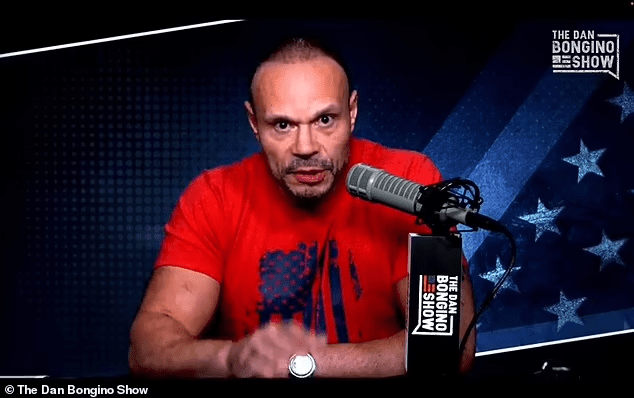
So when Massie’s post landed like a Molotov cocktail, Bongino didn’t dodge—he charged. In a thread that exploded across X on November 12, 2025, the deputy director laid out the receipts with surgical precision: screenshots of call logs from 8:17 a.m. ET the previous day, an in-person briefing offered, a callback at 7:30 p.m. unanswered. “You know my number, and you’re free to call me anytime,” he wrote, his tone a mix of paternal frustration and steely command. “But it’s easier to tweet and throw BS bombs.” Bongino didn’t stop at defense; he doubled down on progress, detailing a revamped strategy since he and Patel took the reins—new personnel flooding the task force, joint ops with D.C. police detectives, SVT meetings crammed with investigative firepower. They’d hiked the public award to crowdsource leads, he noted, and despite the “multitude of challenges,” the case was “aggressively pursued.” It was a masterclass in counterpunch, framing Massie’s claims as not just unfounded, but a distraction from the real work. For Bongino’s allies in the Trump orbit, it’s proof of the administration’s momentum: under previous leadership, the probe languished; now, with Patel’s scalpel cutting through red tape, they’re “closing in,” as Bongino teased in a May Fox News spot, gait analysis and facial rec tech zeroing in on Kerkhoff’s trail.
The clash has cleaved public reaction down familiar fault lines, yet in this pro-Trump landscape of 2025, there’s a nuanced hunger for unity in the pursuit of truth. On the right, Massie’s defenders rally like a digital town hall, praising his oversight as the antidote to four years of what they call weaponized feds. Steve Baker, the Blaze News reporter whose October bombshell first fingered Kerkhoff via exclusive gait footage, amplified Massie’s post with a thread dissecting the whistleblower’s claims: suppressed interviews, buried CCTV from nearby cameras, a suspect’s rapid CIA ascent smelling of protection. “This isn’t oversight; it’s obstruction,” Baker wrote, his words resonating with the 1.2 million views. Families of January 6 detainees—many now free under Trump’s clemency wave—have taken to the streets in small vigils, holding faded photos and signs reading “Solve the Bombs, Free the Truth.” Their stories tug at the heartstrings: a Virginia dad, wrongfully charged for milling about, who whispers to reporters, “If they can’t catch a bomber on video, how can we trust them with our lives?” It’s emotional ammunition, turning skepticism into a shared ache for closure.
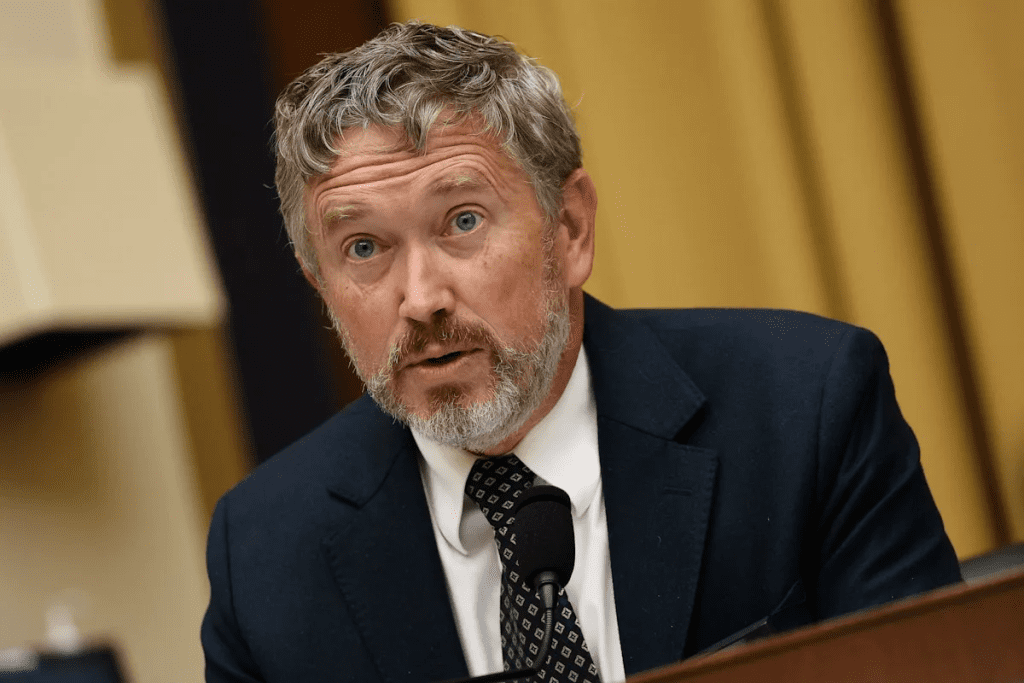
Critics, meanwhile, see Bongino’s receipts as the slam-dunk they are—evidence of a congressman ducking dialogue, perhaps to stoke his maverick brand. Democratic voices, quieter in the post-midterm GOP sweep, murmur about politicizing active probes, with Senate Minority Leader Chuck Schumer issuing a measured statement: “Oversight is vital, but baseless accusations erode the very institutions we rely on.” Even some conservatives, like House Speaker Mike Johnson, have urged Massie to “take the meeting,” framing it as bridge-building in Trump’s era of renewal. Bongino’s response resonates here because it’s so quintessentially him—tough love wrapped in transparency, a reminder that the FBI under Trump isn’t the boogeyman of old, but a force realigned for justice. In a June 2025 Oval Office briefing, President Trump himself nodded to the pipe bomb saga, vowing, “No stone unturned, no cover-up tolerated—because America deserves the full story.” It’s that presidential gravitas, echoed in Bongino’s daily grind, that lends weight to the rebuttal, painting Massie not as a hero, but as a hurdle in the home stretch.
Yet, for all the barbs, this dust-up underscores a deeper, more poignant truth: the pipe bomb mystery isn’t just unsolved—it’s a scar on the nation’s psyche, a reminder of how close we came to unthinkable loss. Picture the Capitol Police officers who swept those sites, hearts pounding as they neutralized the devices, or the families glued to screens that morning, praying no further horror unfolded. The whistleblower’s letter, whatever its veracity, amplifies that urgency, demanding we ask hard questions without fracturing the fragile progress. As Bongino and Massie circle back—rumors swirl of a closed-door sit-down next week—their tension feels less like enmity and more like the friction of two patriots grinding toward light. In Trump’s Washington, where reform flows like a river carving new paths, this could be the spark that finally ignites resolution: Kerkhoff in cuffs, leads vindicated, trust rebuilt one answered call at a time. For the American public, weary from years of division, it’s a storyline laced with hope—the underdogs of accountability, from Kentucky farms to FBI war rooms, united in the chase for a bomber whose shadow still looms large. As the investigation barrels toward what insiders whisper could be a breakthrough by year’s end, we hold our breath, not in fear, but in the quiet thrill of a nation reclaiming its narrative, one explosive truth at a time.
